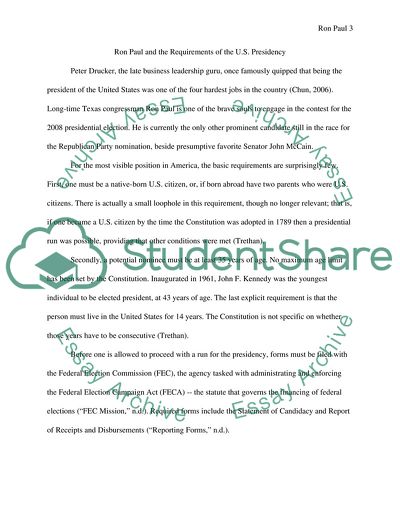Cite this document
(Ron Paul and the Requirements of the U.S. Presidency Term Paper, n.d.)
Ron Paul and the Requirements of the U.S. Presidency Term Paper. https://studentshare.org/politics/1714047-ron-paul
Ron Paul and the Requirements of the U.S. Presidency Term Paper. https://studentshare.org/politics/1714047-ron-paul
(Ron Paul and the Requirements of the U.S. Presidency Term Paper)
Ron Paul and the Requirements of the U.S. Presidency Term Paper. https://studentshare.org/politics/1714047-ron-paul.
Ron Paul and the Requirements of the U.S. Presidency Term Paper. https://studentshare.org/politics/1714047-ron-paul.
“Ron Paul and the Requirements of the U.S. Presidency Term Paper”. https://studentshare.org/politics/1714047-ron-paul.


